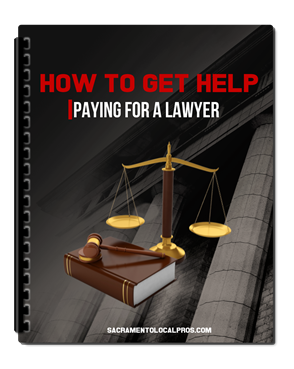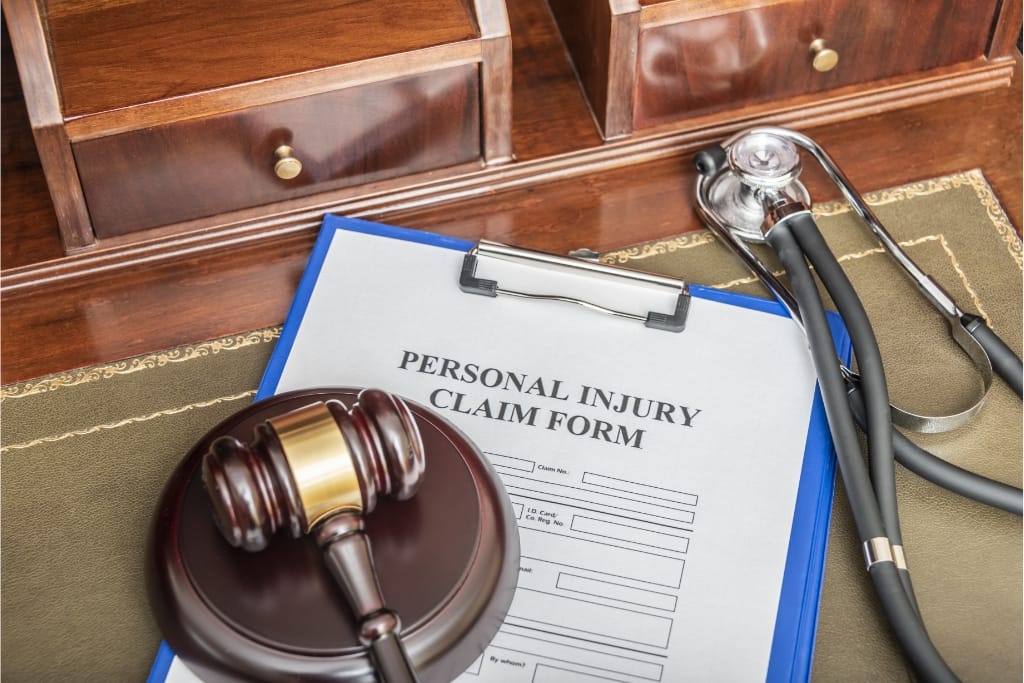Personal injury claims are never easy, especially when it comes to negotiating compensation deals.
Unfortunately, most victims of accidents often focus on getting medical attention and forget to seek legal representation to get the compensation they deserve.
Maximizing the settlement of a personal injury claim is extremely important, and there are several ways to do so.
We'll discuss five tips to help you get the most out of your personal injury claim settlement.
1)) Seek Medical Attention If Necessary
The first and most important thing to do after an accident is to seek medical attention.
Don't try to assess the damage yourself. Only a professional doctor can assess the severity of your condition, recommend treatment, and provide you with a medical report that helps bolster your case.
Without a medical report, proving that you were injured may be impossible, and you're not likely to receive compensation.
Tips to Make the Most of Medical Attention:
- Consult a Specialist: If your injuries are severe or specific, consider getting a second opinion from a specialist. They will not only provide a comprehensive overview of your condition, but their feedback can also add significant weight to your case.
- Follow Doctor's Orders: Strictly adhere to the prescribed treatment plan. Skipping appointments or not taking medications as directed may give insurance companies a reason to doubt the severity of your injuries.
- Document Everything: Maintain a detailed record of your medical treatments, including doctor visits, prescribed medications, physical therapy, and any other related expenses. These records serve as crucial evidence to support your claim.
Seeking immediate and thorough medical attention is a vital first step in any personal injury claim.
It not only ensures your health and well-being but also strengthens your case by providing credible evidence of your injuries.
Meticulous documentation and adherence to your doctor's instructions will enhance your credibility and maximize your potential settlement.
2)) Gather Evidence
To maximize the value of your insurance claim, you need to present as much evidence as possible that supports your case.
Take photos and videos of the accident, obtain eyewitness testimonies, have an authority's statement related to the accident, and gather any other information that can be used as evidence.
The more evidence you have, the stronger your case will be, and the higher your settlement amount.
Tips for Effective Evidence Gathering:
- Photograph Everything: Photographs provide visual proof that can dramatically strengthen your case. Capture every detail of the accident scene, including your injuries, any property damage, road conditions, and any visible signs, like traffic signals or signs.
- Record Eyewitness Accounts: Witnesses can corroborate your account of the incident. Immediately write down their names, contact information, and statements. Their testimonies can play a crucial role in your case.
- Preserve Physical Evidence: If there's any physical evidence from the accident scene, like damaged clothing or car parts, keep it safe. This evidence can help demonstrate the severity and impact of the accident.
Gathering comprehensive and compelling evidence is a cornerstone of building a robust personal injury claim.
It encompasses everything from photographs and eyewitness testimonies to physical remnants from the accident scene.
The more detailed your evidence, the more persuasive your case will be, potentially leading to a higher settlement.
It's not just about proving liability, but also about substantiating the impact and effects of the accident on your life.
3)) Hire A Personal Injury Attorney
Hiring a personal injury attorney is one of the most critical steps if you're looking to maximize your settlement.
An attorney will handle the legal procedures, ensure you're treated fairly, and bring years of experience and knowledge to the negotiation table.
They'll also help you collect critical information that you may not have considered and help you navigate the legal system.
In most cases, personal injury attorneys charge on a contingency basis, meaning you don't pay any fees until you receive your settlement.
Tips for Hiring the Right Personal Injury Attorney:
- Experience Matters: Choose an attorney who specializes in personal injury law and has an extensive track record of successful settlements or verdicts. Their knowledge and experience in dealing with similar cases can significantly impact the outcome of your claim.
- Check Reviews and References: Look up online reviews and seek referrals from friends or family members. Client testimonials provide a clear picture of an attorney's reliability, communication style, and success rate.
- No Win, No Fee: Opt for a lawyer who works on a contingency fee basis. This payment structure means you only pay if they win your case, which ensures they'll be motivated to secure the best possible settlement for you.
Engaging a competent personal injury attorney is a pivotal step toward securing a fair settlement.
Their expertise, coupled with a deep understanding of personal injury law, can dramatically influence your claim's outcome.
By choosing an experienced attorney who operates on a contingency fee basis and comes highly recommended, you ensure that your case is in capable hands.
Your attorney is your advocate in these complex legal proceedings and can significantly alleviate the stress associated with navigating the legal system.
4)) Keep Detailed Records
Keep comprehensive records of your case, including medical bills, lost wages, and all other expenses associated with your injuries.
You'll need this documentation to support your claim during negotiations.
Keeping detailed records of your expenses makes it easier to calculate the value of your case, and it shows insurance companies and the court system that you're taking your injury claim seriously.
Tips for Maintaining Comprehensive Records:
- Stay Organized: Keep a dedicated file or binder where you store all documents related to your case. This can include medical bills, receipts for any injury-related purchases, and documentation of lost income.
- Record Everything: From medical expenses to travel costs for medical appointments, every penny counts. Also, include evidence of lost work opportunities or promotions due to your injury.
- Save Communication Records: Keep copies of all correspondence with insurers, medical professionals, and your attorney. This can be useful in demonstrating your proactive approach and the timeline of events.
Maintaining detailed records is a crucial aspect of a personal injury claim.
It not only supports your case but also streamlines the negotiation process with insurance companies.
Having a well-organized and exhaustive record of all expenses, communications, and lost opportunities due to your injury helps in substantiating your financial losses.
It also demonstrates your seriousness about the claim, which can factor into the settlement you receive. A well-documented case can be a strong case.
5)) Don't Accept The First Offer
While it's understandable to want to settle your case as quickly as possible, jumping at the first offer from an insurance company can be disastrous.
Insurance companies often try to settle cases quickly and at a lower amount than what you'd be entitled to.
As a general rule of thumb, wait until you have recovered from your injuries or at least reached a point of recovery where your medical bills are not expected to increase.
Once you receive medical clearance, you and your attorney can confidently negotiate and receive a fair settlement.
Tips for Negotiating a Settlement Offer:
- Don't Rush: Remember that the first offer is often not the best. Take your time to review it and discuss it thoroughly with your attorney before responding.
- Consider Future Costs: Make sure the settlement offer covers not just your current medical bills and lost wages, but also any future treatment costs and income losses.
- Seek Professional Advice: Always consult with your attorney before accepting any offer. They can help you understand the true value of your case and guide you in the negotiation process.
Refusing to accept the first offer in a personal injury claim is a strategic move that could result in a more substantial settlement.
It's essential to be patient, consider potential future costs related to your injury, and above all, seek professional advice.
Your attorney's experience and expertise are invaluable in assessing the true value of your case and negotiating a fair and comprehensive settlement.
The goal is not just to settle, but to secure the compensation you rightly deserve.
Conclusion
Navigating the complexities of a personal injury claim can be daunting, but with the right knowledge and preparation, you can certainly make your journey smoother.
From engaging a reputable personal injury attorney to meticulously maintaining records and being strategic about settlement offers, every step holds significant importance.
It's crucial to be patient, organized, and proactive. Above all, remember that you are not alone in this process.
Legal professionals are there to guide you each step of the way, so make sure to use their expertise to your advantage.
Armed with these guidelines, you are better prepared to pursue your claim and secure the compensation that you rightfully deserve.
Download Our Free E-book!







